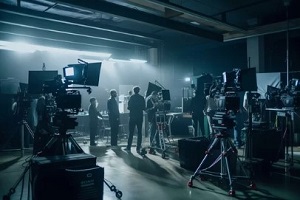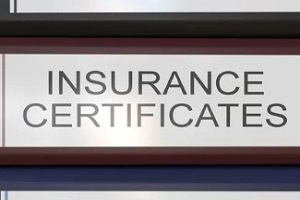 Filmmaking is a massive industry that spans dozens of project types, scopes and risks. Across the country, hundreds of thousands of professionals work around the clock to put moving products on the screen, from music videos to feature-length films. While most individuals might think of movies or television shows when asked to consider the work put into filmmaking, an equal amount of effort is dedicated to producing commercials, ads, short films, music videos and more.
Filmmaking is a massive industry that spans dozens of project types, scopes and risks. Across the country, hundreds of thousands of professionals work around the clock to put moving products on the screen, from music videos to feature-length films. While most individuals might think of movies or television shows when asked to consider the work put into filmmaking, an equal amount of effort is dedicated to producing commercials, ads, short films, music videos and more.
Part of this is because of the higher frequency of commercials produced per movie, and another element is the high production values and demands of modern commercials. These factors make shooting such productions arduous and the focus of heavy investment. The work and effort put into film production are thus reflected in steadily increasing budgets for commercials. These budgets then go to paying for actors, camera operators, gaffers, various forms of equipment, caterers, venues and numerous other roles and materials.
If any of these essential components run into unexpected trouble, the production could lose money, go over budget or not proceed at all. That is why, as with any industry, protecting production with a sensible insurance plan is critical. And while short-term productions are more similar to traditional film production than people might think, a few similarities impact what insurance coverage works best.
Here is what you need to know about how short-term production insurance protects filming, whether commercials, infomercials, music videos or other non-feature projects.
What Types Of Production Insurance Policies Can Cover Short-Term Productions?
The core difference between producing a short-term commercial project and other related forms of filmmaking is the time spent on the project. Feature film production takes months or years, especially if the time for preparations and editing is included alongside the potential need for reshoots.
Commercial production naturally takes much less time. The end product is much shorter, and depending on what is being advertised in the short production, not all traditional components of films are necessary. For instance, commercials for food or restaurants often preclude the need for on-screen actors.
For these shorter productions, creators generally have two options. They can buy short-term production insurance for a given production or overarching annual production insurance for any project made in a given year.
This latter option, DICE (documentary, industrial, commercial and educational) insurance, protects a producer for an entire year regardless of how many projects they choose to work on. DICE insurance is a sensible, economical option if the producer plans to film more than one short product.
However, suppose a producer does not expect to have more than a couple of projects in a year. In that case, regular short-term production insurance is likely the smart way to proceed.
What Types Of Coverage Do Short Projects Achieve With Production Insurance?
Production insurance provides substantial coverage with variations based on each specific policy. Annual production insurance must be acquired through a certified insurance broker, and each broker has their requirements and preferences.
This is why it is critical for prospective clients to carefully research not only the specifics of the policy that they are considering but also the agency through whom they plan to work.
Reputable insurers will all typically cover the basics of film production, like equipment damage and loss of film or footage; however, producers should reach out to multiple brokers to find one that best suits the needs of their projects. A reputable insurer will generally safeguard a few specific areas of risk:
Protection Of All On-Set Employees
The people in front of and behind the cameras are the most important part of any production. If actors are harmed or unable to finish the shoot, or if grips and gaffers get sick, production insurance can compensate for their absence or, in certain cases, even pay for medical treatment.
Additionally, specific jobs on set are more dangerous than others. If a commercial needs stunt workers to create life-like dangerous feats on film, they can be insured to protect them if the stunt goes wrong.
Insuring stunt workers is notoriously complicated, as they put themselves at risk for a living. Finding the right broker is integral to keeping stunt actors safe. An insurer who works closely with the film industry can help you to navigate the process of adding further coverage for hazardous stunts that may not be included in a base policy.
Protection Of Filming Equipment
A substantial amount of equipment is required to make high-quality films. The most obvious example is the cameras—which are expensive in their own right—alongside related costs like the rigging to hold up and support the cameras and specific Steadicam rigs.
Sound and lighting equipment is also necessary; other tools, such as transportation and refrigeration equipment, are vital but do not contribute directly to what is visible in the frame.
Many of these film-related tools will be rented rather than bought, especially for commercials, and if the equipment malfunctions or breaks, legal action from the provider could delay production or completely end the project. Production insurance offers financial protection to get the shoot back on track and any legal fees addressed.
Protection Of Miscellaneous Components
Each film production is different, so there will be unique insurance opportunities depending on what the commercial offers and how it is advertised. Some productions might include animal actors, which will require unique insurance coverage. Others might require highly specific equipment, such as pyrotechnics, with specialized workers to manage them safely.
Providers of film production insurance work closely with industry professionals and have experience in highly individual situations such as these. They can provide coverage that fits the unique components of a given shoot.
Calculating The Cost Of Short-Term Production Insurance
The cost of short-term production insurance is naturally tied to the production size and the shoot’s nature. Insurance will not cost the same from production to production because each production differs, and different providers set their own prices.
DICE insurance will likely come as a one-time premium for the year the insurance is active, typically averaging no more than $1000. Especially detailed shoots with multiple unique and hard-to-insure elements may exceed this number. Still, insurers can work with producers to maximize protection while minimizing costs.
Monthly plan premiums do not generally cost more than $100. However, this will vary if the production regularly uses difficult-to-insure components such as dangerous stunts or pyrotechnics. Some of these elements can be written around or replaced with special effects.
Still, the cost of special effects workers will also need to be insured. There is no replicating the impression of real stunts if a producer can find an insurer who can properly address their needs.
For a general idea of how much short-term production insurance will cost, consider it in the context of the project’s budget. Only about 2% to 3% of the entire budget should be spent on production insurance, so if the commercial has a budget of $10,000, only $200 to $300 of this amount will be dedicated to insurance coverage.
How To Acquire A Short-Term Production Insurance Policy
The first step of getting short-term production insurance is figuring out all the most important aspects of a given shoot and production. Understanding everything about the production will help producers find the best coverage, as the cost of insurance is directly tied to the project’s budget and the specific details of the shoot. Thoroughly understanding the production also helps to ensure that everything beyond the scope of insurance is running smoothly.
Filmmakers need permits and rights to shoot, as well as to vet and hire dozens of workers. Most filmmaking bodies will not issue permits for production until a studio can demonstrate that they have acquired sufficiently comprehensive insurance coverage.
Once the production details are hammered out, the producer should look for the right broker to insure through. Producers should investigate multiple options since the best course of action is to commit to a single broker to avoid overlapping and insufficient coverages. They will need a provider who covers the specific requirements of their project, which may mean partnering with one specific insurer that offers multiple types of protection.
 No matter which broker is chosen, they must provide certificates of insurance (COI). Submitting a claim to redeem insurance will require a COI, and there cannot be a delay in acquiring this documentation in case something unexpected happens on set.
No matter which broker is chosen, they must provide certificates of insurance (COI). Submitting a claim to redeem insurance will require a COI, and there cannot be a delay in acquiring this documentation in case something unexpected happens on set.
The certificate(s) of insurance should also be kept on set at all times so that they can be produced for compliance reasons when necessary. Producers should ensure that their coverage includes riders that insure the specifics of their production, such as stunts, pyrotechnics, weather concerns, aerial photography, weaponry, props, sets and others.
Apply For A Short-Term Production Insurance Policy With MFE Insurance Today!
Insuring your film production is non-negotiable, and among the most important parts of finding short-term production insurance for your work and minimizing costs is finding the right provider who specializes in your niche and can protect all facets of the production.
The experts at MFE Insurance focus on offering coverage for film industry professionals, whether you are tackling a feature film or filling your annual schedule with multiple shorter projects. Our easy-to-use client portal offers a way to file claims online so that producers can spend less time in the claims process and more on the needs of their production. Contact us to discuss your shoot’s unique risks and needs.
